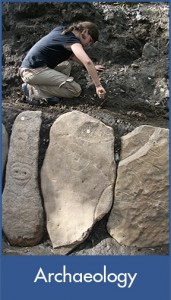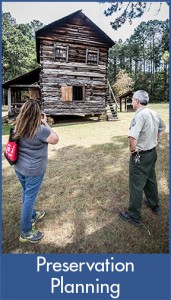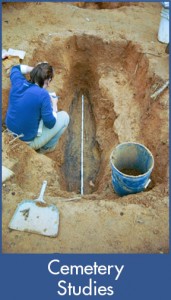New South Associates provides cultural resource management services including archaeology, history, architectural history, historic preservation planning, public interpretation of heritage sites, cemetery studies, and geophysical survey.
Cultural resource studies may be required as part of environmental planning for major construction on projects falling under the guidance of the National Environmental Protection Act (NEPA) and the National Historic Preservation Act (NHPA). Cultural resource services may also be needed to comply with state and local regulations as well as for the treatment of abandoned cemeteries.
Section 106 of the NHPA requires that cultural resources be taken into consideration when planning for federally funded, permitted, and mandated projects. The process entails:
• consultation between the lead federal agency, their state designates (such as DOTs) for federally funded projects, and the State Historic Preservation Officer (SHPO) to determine each project’s Area of Potential Effect (APE) and known cultural resources in the APE;
• consultation with interested members of the public;
• the development of appropriate survey strategies to identify archaeological sites, historic structures, or other cultural resources that may be present in the APE;
• recording of identified sites and structures on the appropriate state inventory form;
• analysis of artifacts recovered from archaeological sites and their preparation for curation at a federally-approved facility;
• and the preparation of a report describing the project’s results and recommendations.
When sites and structures are found, they must be evaluated for their eligibility for nomination to the National Register of Historic Places (NRHP), which may require additional study. Finally, when NRHP-eligible resources are identified in an APE, a Memorandum of Agreement (MOA) is required for execution between the federal and state agencies, SHPO, and the project’s developer and may also require the signature of the President’s Advisory Council on Historic Preservation (ACHP).







